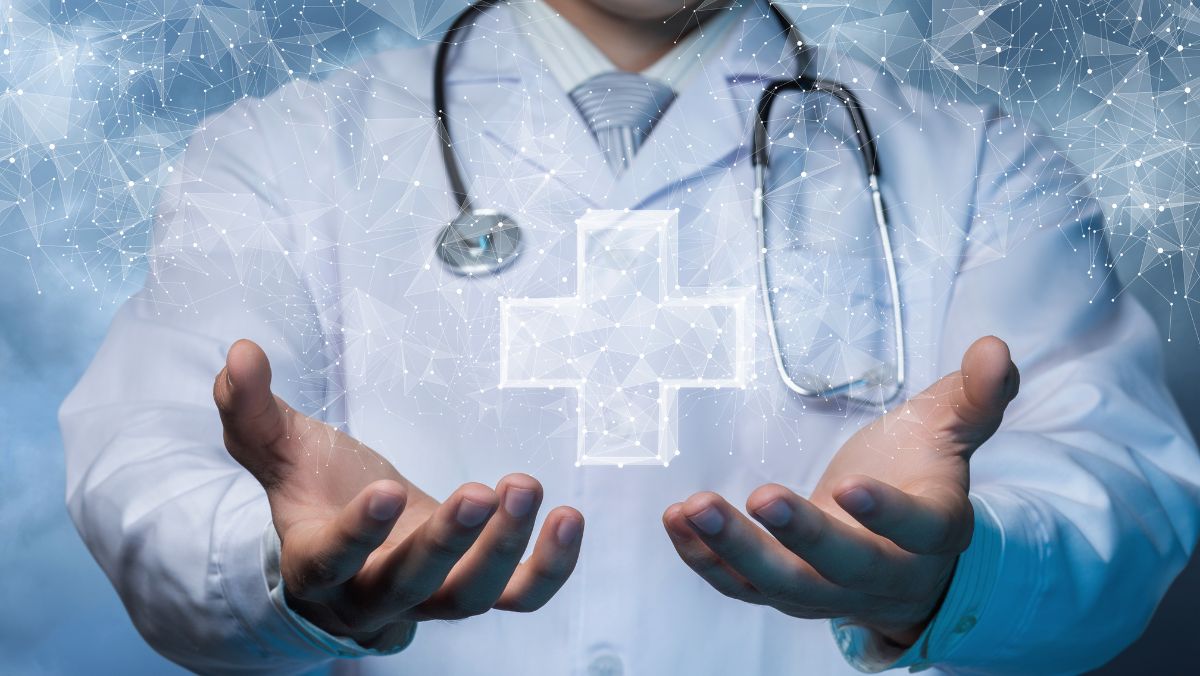
It’s no secret that Artificial Intelligence (AI) is transforming virtually every industry, and healthcare is no exception. AI is bringing new hope for patients and healthcare practitioners alike as it has the potential to streamline healthcare processes, deliver more personalized care, and make healthcare in general more affordable. However, some argue that it may replace the necessary human touch.
AI, as well as advanced robotics and technology at large can improve healthcare outcomes, reduce clerical errors, and offer added convenience for both patients and providers. But how else are these technologies affecting healthcare? And, what does it mean for patients, healthcare professionals, and the healthcare industry?
AI and Robotics Reduce Errors and Work
One of the most significant benefits of AI within the healthcare industry is its potential to reduce errors and work for healthcare professionals. AI algorithms can:
- Analyze health trends to predict diseases
- Detect medical errors
- Offer medical solutions
- Save time
- Reduce human error
This means doctors and other healthcare professionals can concentrate on their areas of expertise while AI takes care of the backend tasks, making healthcare more productive.
AI Trends in Healthcare
Current AI trends in healthcare include predictive analytics, personalized medicine, Electronic Health Records (EHRS), and patient engagement.
- Predictive analytics uses historical data and AI algorithms to predict future patient health outcomes.
- EHRs are digital patient records that allow healthcare professionals to access patient information quickly and securely.
- Patient engagement uses AI-powered chatbots to offer personalized recommendations and support.
- Personalized medicine uses genetic data and other factors to offer tailored treatment plans to patients.
Personalization
Personalization is a huge aspect of AI in healthcare—and it extends to diet and fitness, especially. AI-powered apps can monitor dietary patterns, exercise routines, and sleep patterns, offering personalized recommendations and support based on individual needs. This allows people to take responsibility for their health and make better choices, leading to better weight loss outcomes and overall well-being.
Healthcare for All
The promise of AI in healthcare extends beyond simply reducing errors and making healthcare more efficient. It also has the potential to provide healthcare to everyone, regardless of socioeconomic status. AI-powered devices and apps can monitor patient health and offer unique recommendations and treatment options, making healthcare more accessible and affordable.
Uncomfortable with AI
One overlooked downside of AI in healthcare is the potential for patients to feel uncomfortable. For some, consulting with a robot or receiving treatment from a machine can feel impersonal or even alienating. On the other hand, the potential benefits of AI, like shorter waiting times and enhanced health outcomes, might eventually outweigh this issue. It’s also important to note that AI doesn’t aim to replace the human touch but instead, complement it. The bottom line? AI assists healthcare professionals in delivering customized care.
The AI Effect
Artificial Intelligence is driving a transformative shift in healthcare, promising personalization, error reduction, and enhanced accessibility and affordability. While there are valid concerns about AI replacing human care, it’s crucial to understand that AI primarily enhances human efforts, offering invaluable support and guidance to healthcare professionals and patients.
With AI-driven tools like chatbots, apps, and monitoring devices, we’re witnessing improvements in health solutions for individuals and communities. As AI continues to disrupt the healthcare landscape, the future appears promising for patients, healthcare providers, and the entire healthcare industry.
